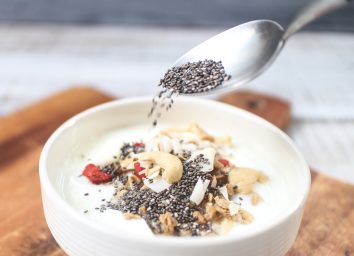This Vitamin Could Lengthen Your Life, Says Science

While nobody is guaranteed a long life, there are some actions you can take to boost your odds.
Keeping up an active social life, getting some sunlight, and sticking to a sleep schedule that works for your body can all help extend your golden years, as can staying active and doing what you need to do to keep your mood up.
The foods that you eat can also play a key role, with some foods boosting your life expectancy and others potentially taking a toll. Now, new research shows that having a higher concentration of vitamin A in your body is linked to living longer.

In the study, published in the journal BioMed Research International, researchers looked at a range of different circulating metabolites (products of reactions in your metabolism) and antioxidants (molecules that fight potentially harmful free radicals), comparing the presence of these to information about participants’ lifespans.
While researchers did not find any link between vitamin C, vitamin E, or a handful of others on life expectancy, they did find that the higher the concentration of vitamin A over a long period of time, the more likely people were to live longer. Plus, the link was causal, meaning that, rather than people with more vitamin A just happening to live longer for some other reason, the vitamin actually had an effect on their longevity.
However, Nichole Dandrea, MS, RDN, author of The Fiber Effect: Stop Counting Calories and Start Counting Fiber for Better Health, cautions in an interview with Eat This, Not That! that the study only looked at people of European descent, so the results may not be generalizable.
She also notes that researchers did not distinguish whether participants were receiving their vitamin A through supplements or through the foods they ate. As such, she suggests generally sticking to a diet of vitamin-rich foods—meaning that you don’t necessarily need to add a new supplement to your repertoire.
“I wouldn’t run out to grab vitamin A supplements after learning about this study,” she says. “Instead, I think it’s important … to keep the study in [your] back pockets as good-to-know information while continuing to consume fruits and vegetables that are good sources of carotenoids like leafy greens, bell peppers, carrots, and sweet potatoes.”
For tips on other vitamin-A-rich foods you can start integrating into your diet, check out The 12 Best Vitamin A Foods For Skin, Hair, and Eye Health, and for tips on eating your way to longevity, try the 20 Foods You Should Be Eating Every Day for a Longer Life.









